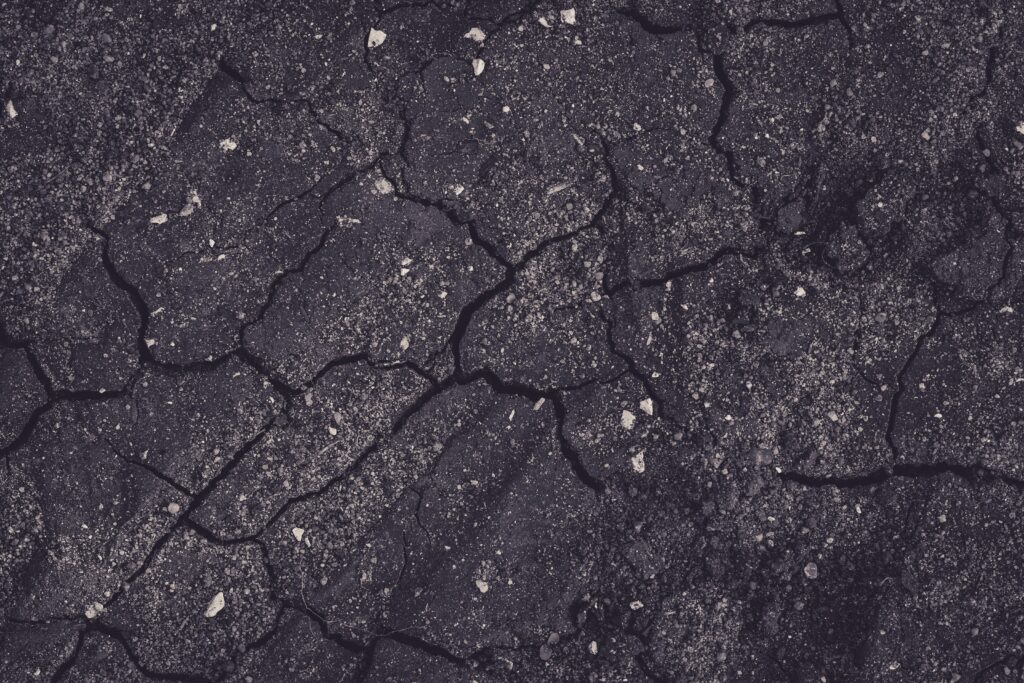One of my goals with these articles is to make them straight forward and easy to understand. This allows people with different backgrounds and experience levels to benefit from them.
Asphalt pavement is a costly investment, and it is important to do the proper maintenance to extend the life as long as possible. Besides crack sealing, one of the most cost-effective things you can do is seal your driveway early and often. Below are reasons why sealing your driveway is important.
What causes asphalt pavements to age?
Below are some of the main reasons why your asphalt pavement can age.
- Sunlight and Wind: Over time sunlight and wind can speed up the aging process of asphalt pavement. The technical term is oxidation. When asphalt starts to age the asphalt becomes less flexible and more susceptible to cracking, raveling, and other types of deterioration.
- Moisture: One way moisture can damage your pavement is if it can penetrate the pavement from the surface (e.g. rain). Once moisture gets into your pavement it can start to break down the bond between the asphalt cement (e.g. the glue) and the aggregates, and moisture will also expand during freezing temperatures. This weakens the pavement and increases the chance of cracks and other distresses forming.
Other items that could have an impact on how your pavement ages and deteriorates.
- Thin Layers of Asphalt: Typically asphalt driveways are 2.5 to 3.0 inches thick. This is typically enough asphalt for driveways, but the asphalt can deteriorate rapidly if it isn’t properly maintained. The strength of the pavement and base layers can decrease rapidly if water is allowed to penetrate. For these reasons, it is important to keep the asphalt in good condition.
- Minimal Amount of Base Aggregate: Most driveways probably only have 3″ to 6″ of base aggregate under the asphalt pavement. This is mostly due to trying to keep the costs down. This is typically enough base, but it may not provide enough support if the pavement ages and deteriorates. Deteriorated pavement can also allow more water in which can lower the strength of the base aggregate.
- Poor Soils: Poor soils (e.g. clay, silt) can be a major cause of asphalt pavement cracking and deteriorating. Poor soils can hold water and they can expand and contract during freeze thaw cycles. This can weaken the base aggregate layer and also put extra stresses on the pavement. An asphalt pavement in good shape will reduce the amount of water that can work its way into the soil layers below.
- Poor Construction: If the contractor doesn’t properly compact the base aggregate and asphalt layer, the life of the pavement will be shortened. There are also a wide variety of base aggregates. Some are more susceptible to holding moisture (e.g. higher silt contents). This can reduce the amount of support it provides the asphalt pavement and is one of the reasons why asphalt pavement cracks. It can also be challenging to pave asphalt driveways. The biggest challenge is trying to keep the asphalt hot. As asphalt cools it becomes more difficult to compact and get higher densities (e.g. lower air voids). Lower densities can make it easier for moisture, sunlight, and wind to age the pavement.
How to slow down the aging process?
Applying a quality asphalt sealer is one of the best ways to address the items discussed above. An asphalt sealer will slow down the aging process for asphalt pavements. The asphalt sealer provides a thin protective layer on the asphalt that helps keep moisture out of the pavement and reduces the damage caused by sunlight and wind. This helps to keep the asphalt more flexible which slows down the deterioration. This should increase the life of the pavement and save you a lot of money over time.
If you are interested in sealing your asphalt driveway, feel free to check out my article on the supplies needed to seal your driveway.
